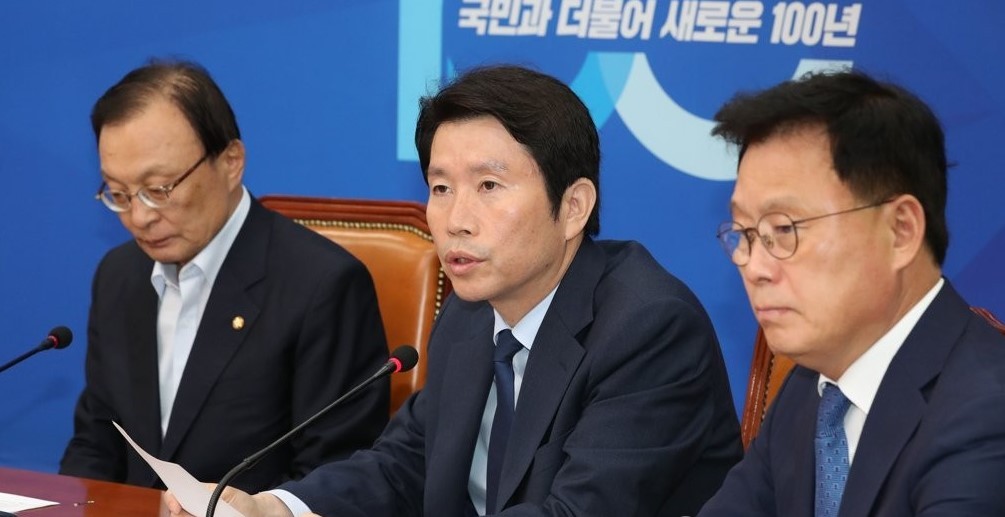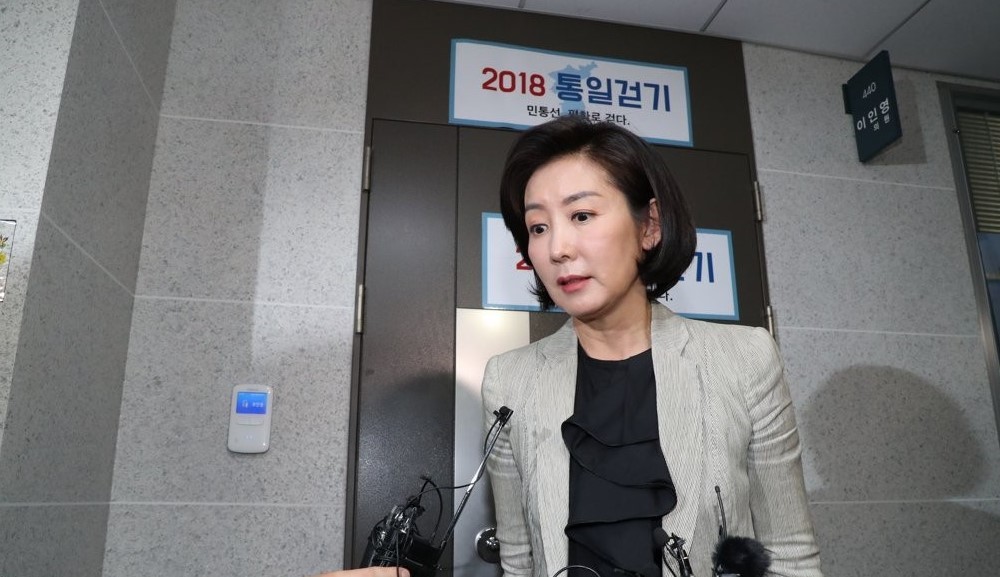Partisan tensions dim outlook for extra parliamentary session in June
By YonhapPublished : June 3, 2019 - 14:49
Rival parties bickered over which side should be blamed for a failure to normalize parliament on Monday, dimming the outlook for the full operation of the National Assembly at an extraordinary session in June.
Under parliamentary law, an extra session automatically convenes on the first days of February, April and June, and on Aug. 16. But, for its full-fledged operation, political parties should reach a deal on a detailed schedule.
Under parliamentary law, an extra session automatically convenes on the first days of February, April and June, and on Aug. 16. But, for its full-fledged operation, political parties should reach a deal on a detailed schedule.

The parliament has not been working for more than two months amid heightened partisan tensions over the latest decision to fast-track key political and judicial reform bills.
In late April, the ruling Democratic Party and three minor parties placed the reform bills on the fast track, despite strong opposition from the main opposition Liberty Korea Party.
A delay in the normalization of the assembly's operation has jeopardized a 6.7 trillion-won ($5.8 billion) extra budget bill and other proposals on people's livelihoods.
The parties were able to begin talks to discuss ways to put the assembly back on track after the LKP completed its 18-day nationwide rallies to protest the fast-track drive on May 24.
The latest negotiations fell through Sunday due to the wording of how to handle the fast-tracked bills that may be contained in their joint statement.

The LKP wants an apology from the DP over the fast-track drive and the passage of those bills through a consensus.
But the DP insists the LKP's demand flies in the face of the spirit of the fast-track designation.
Once a bill is put on the fast track, it can automatically be put to a vote at a plenary session even when relevant committees fail to deliberate on or approve it within a given period.
"The LKP's excessive demand does not help normalize the operation of the National Assembly. It can be seen as an expression of its intent not to negotiate," DP floor leader Lee In-young said during a meeting with senior party members.
But LKP floor leader Na Kyung-won claimed that only after the DP withdraws the fast-track designation will the LKP be able to join the move to normalize the assembly.
"We want to open parliament more than anyone, but a key to unraveling the current stalemate lies in the ruling party," Na said at a meeting with senior party members.
It is not certain whether the parties will hold negotiations later in the day.
The DP previously said it was "carefully" considering making a request by itself that an extra session be held.
But Lee remains prudent about such a possibility, saying there is room for further negotiations.
The minor liberal Party for Democracy and Peace and the leftist Justice Party called for a swift opening of the session even without the LKP.
"If the ruling party feels burdened to summon the session by itself, it can gain support from parties and lawmakers that are willing to join the move," Rep. Youn So-ha, floor leader of the JP, told a party meeting.
Rival parties are embroiled in intensified strife, delaying legislative efforts ahead of the 2020 general elections.
As of Monday, 20,101 bills had been passed during the current 20th assembly, with more than 14,000 bills pending. (Yonhap)











![[Today’s K-pop] BTS pop-up event to come to Seoul](http://res.heraldm.com/phpwas/restmb_idxmake.php?idx=644&simg=/content/image/2024/04/17/20240417050734_0.jpg&u=)





![[KH Explains] Hyundai's full hybrid edge to pay off amid slow transition to pure EVs](http://res.heraldm.com/phpwas/restmb_idxmake.php?idx=652&simg=/content/image/2024/04/18/20240418050645_0.jpg&u=20240418181020)

![[Today’s K-pop] Zico drops snippet of collaboration with Jennie](http://res.heraldm.com/phpwas/restmb_idxmake.php?idx=642&simg=/content/image/2024/04/18/20240418050702_0.jpg&u=)